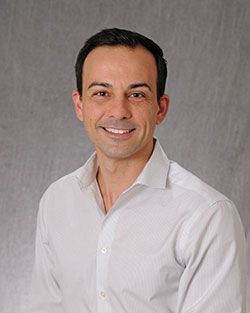
WASHINGTON (Oct. 20, 2020) – The National Institutes of Health has awarded $1.6 million to researchers at the George Washington University (GW) School of Medicine and Health Sciences for research on hormonal control of HIV latency.
Previous research has shown that in HIV patients, there is a latent reservoir of HIV-infected cells established in the earliest stages of infection, which makes finding a cure for HIV difficult. Latent infection is associated with undetectable levels of viral gene expression and appears to be non-cytopathic, meaning the cells are not killed during the course of latent infection, and it is insensitive to current antiretroviral therapies. Several therapeutic interventions against latent HIV are under investigation, with some currently in clinical trials in people living with HIV.
However, said Alberto Bosque, PhD, assistant professor of microbiology, immunology, and tropical medicine at the GW School of Medicine and Health Sciences, “These interventions must take different populations into account as specific biological factors may impact their efficacy. Women represent more than half of all HIV infections worldwide, and transgender patients are at approximately a 49-fold higher risk of being infected with the virus.”
Using a primary cell model of HIV latency, Bosque and his team will work to address whether sex hormones – estrogen, progesterone, and testosterone – as well as antiandrogens used in hormone replacement therapy, could influence the establishment of HIV latency. They will also evaluate whether sex hormones or antiandrogens influence the activity of a panel of latency-reversing agents, including those currently in clinical trials for HIV eradication. Additionally, the team will explore whether sex hormones and antiandrogens influence the activity of “natural killer” cells – a type of white blood cell that plays a major role in the host rejection of tumors and virally infected cells – to kill HIV-infected cells.
“In order to end the HIV epidemic globally, we must implement a combination of approaches, which include early detection, prevention strategies, higher treatment efficacy and accessibility, outreach, and hopefully a vaccine or cure,” Bosque said.
Bosque hopes this research will inform our understanding of the role that sex hormones and antiandrogens could play in current and future approaches toward a cure for HIV in diverse populations.
The study is funded through May 2024.


